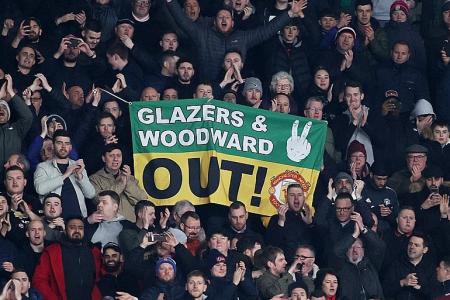
Richard Buxton: As EPL restarts, football's abuse culture must stop
by Richard BuxtonUnited States President Donald Trump's stated allegiances to Manchester United are starting to become ever clearer.
Earlier this week, Trump raged at Twitter for scrutinising his litany of boastful tweets in a fact-checking exercise.
His diatribes would not look out of place among United's digital army of malcontents. Both would love nothing more than to set the world on fire and watch it burn.
Football's abuse culture, however, is not exclusive to America's current Commander in Chief and the 20-time English champions.
Matches may have ground to a halt since mid-March, but a large number of the Beautiful Game's purported followers continue to insult and offend apace.
People who share the "be kind" hashtag whenever a celebrity tragically succumbs to their demons think nothing of doling out venom to footballers within weeks, days and even hours.
Anyone acting as a potential barrier to their latest wants and desires is considered fair game for unwarranted levels of vitriol, as Watford captain Troy Deeney has now publicly attested.
Deeney occupies a unique position in his reluctance to dive head-first into "Project Restart".
His teammate Adrian Mariappa was diagnosed with Covid-19, along with two members of the club's technical staff during the English Premier League's first round of testing.
The striker's ethnic background, coupled with a five-month-old son who suffers from breathing difficulties, places his family at greater risk of contracting the virus than most of his peers.
Not that so-called football supporters seem to even care, judging by the hurtful and offensive messages sent to Deeney, hoping that his child falls victim to the coronavirus.
Those levels of bile are set to extend to all EPL players once top-flight games are finally given the go-ahead to return.
One mistake or poor performance will invariably prompt a deluge of angry men to morph into cyber thugs.
Faceless cowards, often hiding behind profiles featuring club badges or incorporating the names of their favourite players, will again rain down death threats, racist remarks and other assorted abuse on footballers and their families for committing a basic human error.
Being well-paid does not insulate those on the receiving end of such verbal poison. Someone as physically imposing as the heavily tattooed Deeney is equally not immune from the psychological torment associated with sifting through the painful and unprovoked remarks.
Mental health issues are becoming increasingly prevalent within the game, as a growing number of current and former players have actively sought much-needed help for their well-being.
CONTRIBUTING FACTOR
For many, the abuse faced on social media is undoubtedly a contributing factor.
Worryingly, the invective that pours off keyboards and smartphones had already seeped into stadiums before the coronavirus hiatus, as evidenced by a vocal minority of United fans sinisterly chanting mid-game about how their own CEO Ed Woodward was "gonna die".
Social-distancing measures may dilute the match day experience in the months ahead, but come as a mixed blessing in preventing the terraces from again being awash with such acridity.
Restoring a sense of normality by resuming competitive fixtures should not excuse or facilitate the unacceptable behaviour of the game's keyboard warriors to return with a vengeance.
Twitter has finally checked its privilege; football now needs to do the same.